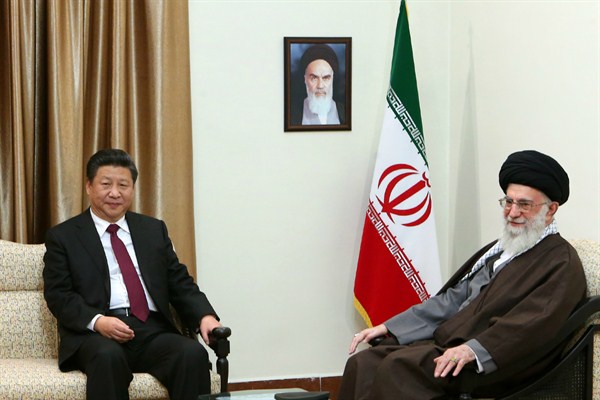Earlier this month, China’s Ministry of Foreign Affairs released its first-ever Arab Policy Paper, which coincided with President Xi Jinping’s visit to Saudi Arabia, Egypt and Iran last week. Xi’s trip was the first visit to the region by a Chinese head of state since former President Hu Jintao went to Saudi Arabia in 2009. Five years before that visit, Hu established the China-Arab Cooperation Forum (CACF), a multilateral platform to institutionalize the relationship between Beijing and the 22 members of the Arab League. Since its formation, the CACF has largely fulfilled its mission, with the forum meeting 12 times at the working level and six times at the ministerial level.
By releasing the Arab Policy Paper ahead of Xi’s tour, Beijing wanted to signal its intention to take its strategic cooperation with Arab states further. The paper reiterates what China calls its “Five Principles of Peaceful Co-Existence” and lays out an ambitious agenda for deeper bilateral cooperation between China and Arab states across a range of areas, from trade and infrastructure to security. The document invites Arab states to join Chinese efforts to build “a new type of international relations” built on the foundations of “win-win cooperation.”
But diplomatic niceties aside, the document is basically a manifesto of China’s quid pro quo approach to the Arab world. It officially clarifies China’s expectations from its Arab partners: stable oil flows; support for China’s positions on Tibet, Taiwan and Xinjiang at the United Nations; cooperation on China’s regional economic integration plans through its huge One Belt, One Road development initiative across Eurasia; and increased counterterrorism and intelligence cooperation. In exchange, China promises to help Arab states maintain their political independence, peacefully manage and resolve conflicts in their region, develop their economies, and safeguard their legitimate interests—what Foreign Minister Wang Li referred to as the “four supports” during his own tour of the Middle East in 2014.

